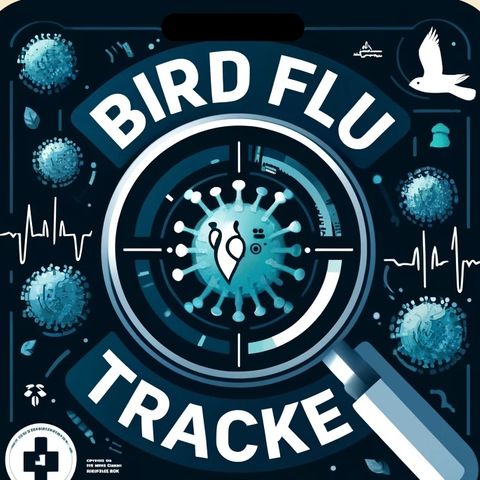Bird Flu update for 10-09-2024

Regístrate gratis
Escucha este episodio y muchos más. ¡Disfruta de los mejores podcasts en Spreaker!
Descarga y escucha en cualquier lugar
Descarga tus episodios favoritos y disfrútalos, ¡dondequiera que estés! Regístrate o inicia sesión ahora para acceder a la escucha sin conexión.
Bird Flu update for 10-09-2024
Esta transcripción es generada automáticamente. Ten en cuenta que no se garantiza una precisión absoluta.
Descripción
Australia has stepped up its biosecurity enforcement in response to mounting concerns about the H5N1 bird flu strain, which poses a significant threat to the country’s diverse bird populations and...
mostra másH5N1 bird flu, also known as avian influenza, has a history of causing severe respiratory diseases in birds, leading to high mortality rates. Its potential to affect a variety of species, including migratory birds that visit or pass through Australia, has put the country's biosecurity officials on high alert.
The heightened biosecurity measures include rigorous screening and monitoring at points of entry such as airports and seaports, particularly for shipments of birds and poultry products. These preventive strategies are critical, as these entry points are considered high-risk zones for the introduction of the virus into Australia.
In addition to border controls, wildlife health monitoring programs are being expanded to include greater surveillance of wild bird populations. These initiatives involve testing deceased birds found by members of the public or reported by wildlife organizations. Such measures are essential for early detection of the virus, which is crucial for containing possible outbreaks and preventing them from spreading to domestic birds and poultry farms.
The spread of H5N1 bird flu to Australia could have catastrophic impacts on biodiversity and the environment. Many of Australia's native bird species, some of which are already threatened or endangered, could face further survival challenges. An outbreak could also disrupt ecological balances, affecting other animal species and plant life that depend on birds for various ecological functions, such as pollination and seed dispersion.
Conservationists and bird enthusiasts are urged to report any unusual bird deaths or signs of sickness in birds to local wildlife authorities, as early reporting can significantly aid in managing potential outbreaks. Members of the public are also advised to refrain from handling sick or dead wild birds and instead contact professionals who are equipped to handle and test these animals safely.
The Australian government's response underscores the serious threat posed by H5N1 and reflects a commitment to protect the country's cherished natural heritage. By strengthening biosecurity defenses, Australia aims to guard against the adverse impacts of this dangerous bird flu strain, preserving its wildlife for future generations.
Información
| Autor | QP-3 |
| Organización | William Corbin |
| Página web | - |
| Etiquetas |
Copyright 2024 - Spreaker Inc. an iHeartMedia Company
